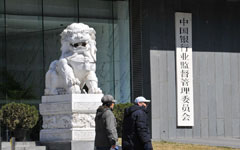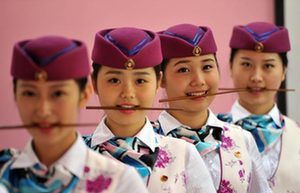Tax benefits expected as China pilots ESOP
(Xinhua) Updated: 2014-06-23 09:42BEIJING - China has released long-awaited guidance on employee stock ownership plans (ESOP), but analysts expect more policy infrastructure, such as tax benefits, to be in place before the mechanism proves effective.
China Securities Regulatory Commission (CSRC) on Friday allowed ESOP to be piloted in listed companies on a voluntary basis, as long as total stocks owned by employees account for no more than 10 percent of the company's share capital.
 |
|
 |
The document also stipulates how long the stock shall be owned by an employee, as well as requirements on information disclosure and other regulations.
The ESOP, in which companies provide employees with stock ownership to allow them to enjoy share entitlement under certain conditions, is a widely-used method to increase efficiency and internal growth of a company in mature securities market.
Previously, China introduced plans that encouraged only senior executives to own stakes in listed companies.
The CSRC began to solicit public opinions on the draft ESOP regulation in August 2012. But it was only last month the State Council made it clear in a document "to improve stock incentives of listed companies and allow them to carry out ESOP in various forms by regulation."
The nod from the State Council was also in line with the task to diversify the ownership of State-owned enterprises and develop a mixed-ownership economy, one of the reform priorities set in a key plenum of the Communist Party of China in November 2013.
In fact, de facto employee-owning-stocks phenomena are not uncommon in China's A-share market. CSRC data showed that by the end of 2012, 74 percent of listed companies had employees holding stocks of their own firm.
- Infiniti focus campaign on hit TV reality show
- Hunan home to joint venture ArcelorMittal auto steel plant
- New E-Class Mercedes-Benz unveiled in Xi'an
- China, US airlines carry 4.4m passengers in 2013
- Luxottica sees room for fast growth
- Race is on to luxury market
- Global alliance to boost hiring
- Tax benefits expected as China pilots ESOP

















